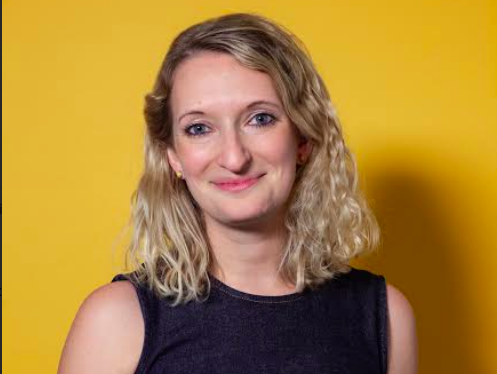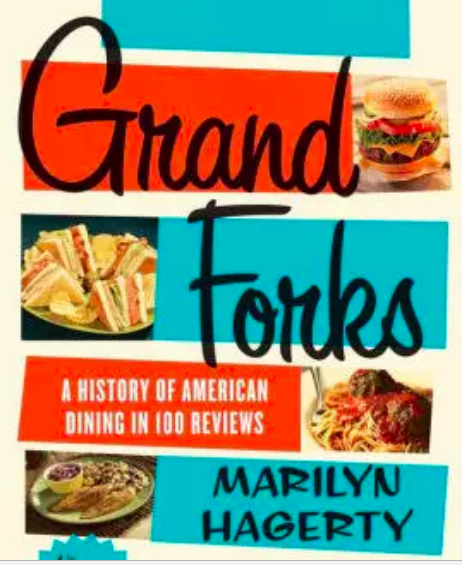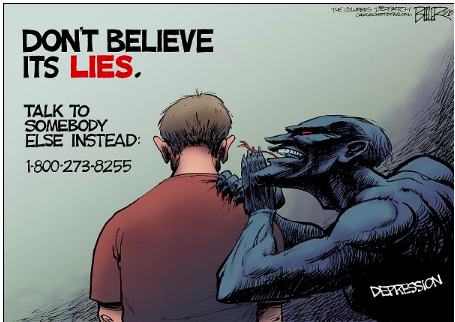Craigslist founder gives $20 million to CUNY J-School
Growing up in a neighborhood of first- and second-generation Americans in Morristown, New Jersey, Craig Newmark took to heart his U.S. history teacher’s lessons on the nation’s democracy — and of its goals of fairness, opportunity and respect for all.
The billionaire founder of Craigslist cited those lessons in explaining a gift, announced this morning, of $20 million to further journalism instruction at the only standalone public graduate journalism school in the Northeast. Under the gift, the CUNY j-school will be renamed the Craig Newmark Graduate School of Journalism at the City University of New York.
“We are living in a time of crisis,” Newmark said in an interview, noting that the integrity of both democracy and journalism are under attack. “We need a lot more people coming in the field doing good journalism.”
It is by far the biggest single journalism donation by Newmark, who has focused another $20 million in various initiatives to bring diverse viewpoints into reporting, strengthen transparency and media ethics, back fact-checking efforts and stop technologies that spread disinformation.
Craig Newmark (Photo/Bleacher+Everard) Used by permission.
Newmark, whose family struggled economically growing up, was attracted to CUNY’s service to people of diverse economic backgrounds. The full in-state cost of a three-semester master’s degree is $18,000, said Sarah Bartlett, dean of the CUNY j-school, founded in 2006. (It's $31,000 for out-of-state students). More than half of the 150 students entering each fall get some form of tuition relief; more than half of all students are from underrepresented communities, she said.
To Bartlett, the gift comes after four years of declining public funding for the j-school, despite an increasing demand to serve qualified students.
"It really cements our future," Bartlett said, adding that the gift, among other things, will allow the school to endow positions and withstand some budget uncertainties.
Newmark, who also has supported the Poynter Institute with a $1 million gift to create an ethics chair, said he’s recusing himself from any decisions on how his CUNY donation is spent.
He does, however, acknowledge a goal for U.S. journalism and democracy.
He envisions a series of newsfeeds for citizens in the future. Even if the news were presented from differing points of view, he said, “any of us would choose news feeds and feel comfortable that what we were reading was trustworthy." And each site, no matter the point of view, would be fact-checked and if it found an error, would correct it in a serious way.
Newmark has called journalism “the immune system of democracy.” This may help.
Quick hits

NEW MANAGING EDITOR FOR OZY: Fay Schlesinger, the former head of news for The Times of London, will become ME for OZY Media, the company announced Monday. Schlesinger, a prize-winning investigative reporter, moved from news and home editor at The Times to become, in 2015, the first female and the youngest head of news for the 230-year-old publication. OZY founder and CEO Carlos Watson called Schlesinger’s arrival ‘’the dawn of a new day” for OZY. At The Times, two editors are sharing Schlesinger’s old job, home news editor Dan Parkinson and Daily Mail executive features editor Katherine Faulkner, the Daily Gazette reported.
FOCUS: Americans need journalists to focus on the main points of corruption, foreign influence and hurtful policies of the Trump administration — and less on the hourly distractions and gotchas, a panel of journalists said Sunday. People cannot choose their facts — America was losing the war in Vietnam even though it hurt U.S. pride to show it — but they need overarching efforts to tell it like it is, says Steven Brill. Poynter's Indira Lakshmanan and the Atlantic's David Frum joined Brill on Brian Stelter's "Reliable Sources" on CNN.
A REPORTER'S SECRETS: A pro-Brexit British journalist knew of extensive contacts between Russian officials and the leader of Britain's successful — and nation-weakening — campaign to separate from the European Union. But Isabel Oakeshott not only held back the evidence of links between Russia and the Brexit campaign (she says for an upcoming book) but until recently has been trying to knock down such reports as conspiracy theories, The Daily Beast reported. Russia's Brexit interference has been seen as a warmup to Moscow's attempt to bolster Donald Trump's campaign for the U.S. presidency in 2016.
 A GREAT KINDNESS: She was nearly 86 when she reviewed an Olive Garden in 2012 for her North Dakota paper. People laughed at her praise. Anthony Bourdain defended her. He met her for coffee. He not only published a book of hers, he wrote the foreword. "You know, sometimes you go through life and…you think about all the wonderful things that happened to you," Marilyn Hagerty, now 92, told BuzzFeed News. "And one of the wonderful things that happened to me was when Anthony Bourdain spoke up for me and wanted to publish my columns in a book."
A GREAT KINDNESS: She was nearly 86 when she reviewed an Olive Garden in 2012 for her North Dakota paper. People laughed at her praise. Anthony Bourdain defended her. He met her for coffee. He not only published a book of hers, he wrote the foreword. "You know, sometimes you go through life and…you think about all the wonderful things that happened to you," Marilyn Hagerty, now 92, told BuzzFeed News. "And one of the wonderful things that happened to me was when Anthony Bourdain spoke up for me and wanted to publish my columns in a book."
FIGHTER: Jason Rezaian, imprisoned 15 months in Iran not long after filming a CNN episode with Bourdain, said Sunday that Bourdain's work and that episode raised immense awareness of Iran and of the Washington Post reporter's plight. "Throughout my imprisonment, I was wondering if our conversation with him would make it to air. And I'm so happy it did," Rezaian told Brian Stelter. Not only did Bourdain fight for Rezaian's release, he agreed to publish his memoir.
 A STUNNER: Nate Beeler of the Columbus Dispatch didn't look far for inspiration for his moving cartoon on Sunday (used here with permission). "There are a few notable suicides that prompted the cartoon, plus one at my newspaper," Beeler told me Sunday night. "As someone who has dealt with depression in the past, I wanted to draw an image that would speak directly to other people who experience it. And it's pretty straightforward. Depression lies to you, and that's what a depressed person needs to understand more than anything. Don't trust it." (Find out more about Beeler's cartoons here, and follow his work on Twitter.)
A STUNNER: Nate Beeler of the Columbus Dispatch didn't look far for inspiration for his moving cartoon on Sunday (used here with permission). "There are a few notable suicides that prompted the cartoon, plus one at my newspaper," Beeler told me Sunday night. "As someone who has dealt with depression in the past, I wanted to draw an image that would speak directly to other people who experience it. And it's pretty straightforward. Depression lies to you, and that's what a depressed person needs to understand more than anything. Don't trust it." (Find out more about Beeler's cartoons here, and follow his work on Twitter.)
WHAT’S UP IN BUFFALO?: At least 16 staff members are leaving The Buffalo News on targeted or voluntary buyouts, the union says. "There's no sugarcoating what a blow this is to journalism in Western New York," said Guild President Sandy Tan. The employees have been responsible for reporting, fact-checking and producing the paper. The union says the cuts will put the number of columnists and reporters at 44, down from 86 a decade ago.
IT REALLY BEGAN WITH OBAMA: Nobody used an obscure century-old law to go after leakers — and journalists — more than Barack Obama. And now Donald Trump is following in his footsteps, says Margaret Sullivan.
AT THE JOURNALISTIC HEART OF THE CASE: Ali Watkins, now at The New York Times, has had a meteoric rise in Washington journalism that began when she was shuttling between college classes in Philadelphia and a D.C. reporting job. A story that may have set the Justice Department on her trail was her reporting that former Trump adviser Carter Page passed along sensitive data to Russian intelligence. BuzzFeed News editor Ben Smith praised Watkins and called the Justice Department effort “a disgusting smear of a reporter.”
‘A CORNERSTONE OF CREATIVITY’: Chicago Tribune architecture critic Blair Kamin on the newspaper’s last day in its home for 93 years. Columnist Mary Schmich reminds Chicagoland readers: “We’re leaving a building. The newspaper still stands.” Former editor Ann Marie Lipinski used postcards to bid adieu. (Your morning columnist was lucky to work there one summer in college).
MEANWHILE: Things aren't so hot at the other Chicago paper. The CEO of the Chicago Sun-Times says the troubled tabloid has only a 60 percent chance of still being in business two years from now.
What we’re reading
THEY CUT THE MIC ON THIS VALEDICTORIAN: But Lulabel Seitz wouldn’t stop speaking out against alleged sexual assaults at her California high school. “Let her speak!” audience members shouted after administrators cut the power four minutes into her speech. Seitz recorded her talk and published it on YouTube. “I was disappointed in them,” said Seitz of the school officials in Petaluma, California. She is headed to Stanford.
WAR AVERTED: That’s right, looks like Canada and Denmark aren’t going to duke it out over a rock in the Arctic, the CBC reports. The dispute has gone on since the 1970s, although things weren’t exactly at DefCon5. Turns out the Canadians would mark their turf with rye whiskey; the Danes with schnapps. So who will win? Mother Jones’ Kevin Drum, showing off his map skills, says the smart money is on the schnapps.
(Courtesy/Kevin Drum)
A WELCOME RESPITE: “You’ll want to be better after watching it. Kinder.” That’s HuffPost’s Matthew Jacobs on “Won’t You Be My Neighbor?” a couldn’t-come-at-a-better-time documentary about the miracle of compassion and empathy Fred Rogers taught generations with his PBS children's show, "Mister Rogers' Neighborhood." In today's bombastic world, the film, writes Jacobs, “has the ease of a fresh batch of cookies, a joke shared at a sleepover, a Band-Aid applied to a wound, feet dipped gently into a pool.”
MY $.02: Readers, your morning columnist saw the movie and was struck with the searing boldness of the "gentle" Mister Rogers. Imagine, a special show after RFK's death where a puppet asks an adult: "What is an assassination?" Or Rogers scripting a puppet to ask, "Was I an accident?" Or coming up with the words to reassure children when NASA's Challenger mission blew up or New York's World Trade Towers came down? Rogers thought that all people, even the youngest, deserved the respect to work through important issues.
Also on Poynter.org
- How to fact-check votes on abortion and gay marriage. By Daniel Funke.
-
‘Be an early tester and a late adopter.’ Sree Sreenivasan’s latest social media tips. By Mel Grau.
Want to get this briefing in your inbox every weekday morning? Sign up here.
Got a tip, a link, a suggestion? We’re trying to make this roundup better every day. Please email me at dbeard@poynter.org.
And have a good Monday.






